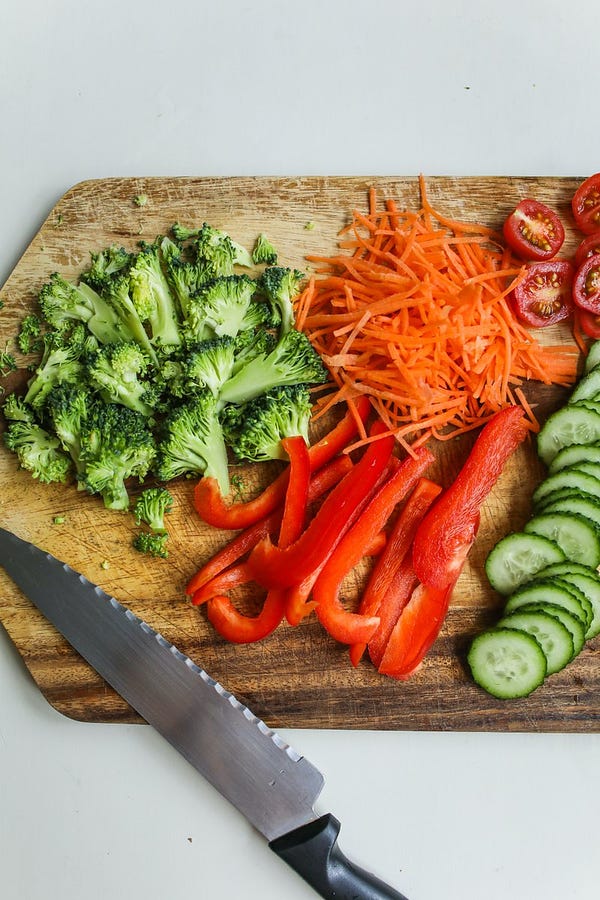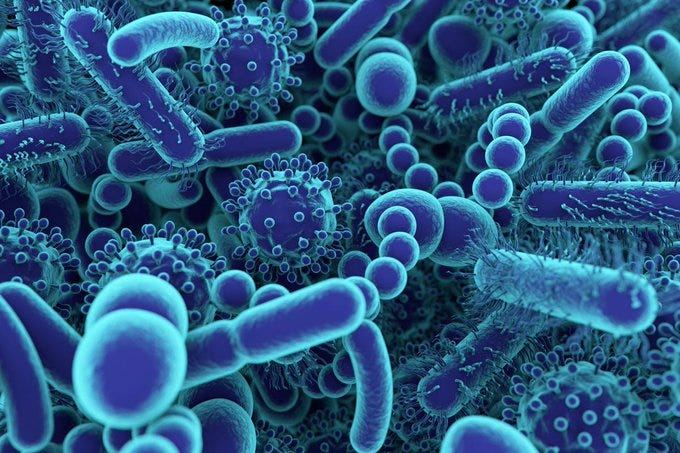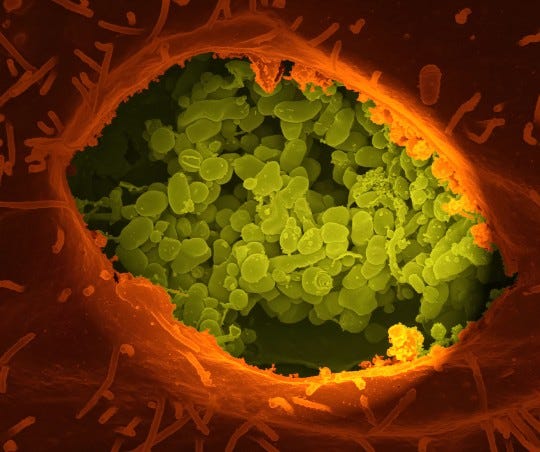“You are what you eat” not just physically but also mentally. Studies tell us that our gut is our second brain, so its health is essential to our physical and mental well being.
At a microscopic level, our microbiome consists of trillions of microorganisms (also called microbiota or microbes) of thousands of different species. [1] These include not only bacteria but fungi, parasites, and viruses. In a healthy person, these “bugs” coexist peacefully, with the largest numbers found in the small and large intestines as a type of inner chemical plant, but also throughout the body. The microbiome is even labeled a supporting organ because it plays so many key roles in promoting the smooth daily operations of the human body, says Havard Health. These include:
Food digestion and effective nutrient absorption
Production of critical nutrients such as B vitamins and vitamin K
The creation of anti-inflammatory compounds
The regulation of immune cell function through the production of short-chain fatty amino-acids
Aiding in digestion
Helping with toxin removal
Aiding in brain function
Fostering a strong immune system
Fostering hormone & serotonin production
Poduce signalling compounds sending messages to our immune systems
You can see that the gut is connected to everything and why it’s important to rebalance the gut microbiome so beneficial bacteria can flourish and get your immune system back on track.
Every day, pathogens — like infectious bacteria, viruses and toxins — threaten your health. The gut barrier’s job is to allow nutrients out into the bloodstream while keeping pathogens and toxins safely locked inside the gut.
Your immune system has special cells that patrol constantly so they can detect those pathogens immediately, responding with powerful weapons to defeat the threat before it affects your health.
But when bad bacteria, toxins and other harmful compounds damage the gut barrier and escape into the bloodstream, the immune system is unable to shut down its responses. That leads to system-wide, long-term inflammation — the root cause of many autoimmune and chronic conditions.
An unhealthy gut can cause:
Chronic pain - mental health issues - brain disorders - mood disorders - autoimmune disease - insomnia - fatigue/low energy - poor digestion - skin issues - cancer - joint pain - learning disabilities - allergies/asthma.
Gut Health Disruptors
Gut dysbiosis damages your immune system and the way it responds to infections. That’s why it’s crucial to get your gut microbiome in healthy balance and keep it there. Some of the worst culprits include:
Antibiotics and other medications – including proton pump inhibitors, beta-blockers and antidepressants that reduce the diversity and abundance of gut bacteria, and have long term, negative effects on the gut, sometimes after a single dose. Unfortunately antibiotics are prescribed extremely frequently today and are indiscriminate – studies have shown that they kill the good bacteria along with the bad.
Environmental Toxins - tons of new chemicals are being made every year. There are too many to name, but a great example is BPA. Pesticides, including glyphosate, can also kill beneficial gut bacteria, allowing bad bacteria to dominate the microbiome.
Junk foods - repeated studies have found that diets high in unhealthy fats, processed meats, and refined sugar will starve out the microbes you need for a healthy gut. In addition, to being very low in fiber, these foods also irritate the lining of your gut and cause obesity which further changes your gut microbiome.
Stress and anxiety affect the body and the gut is one of the first places we feel it because our stomach chemistry is highly tied to our psychological comfort level.
Environmental toxins, including household cleaners and heavy metals, negatively change the makeup and function of the gut microbiome, leading to increased risk of disease.
Sedentary lifestyle leads to increased populations of pathogenic gut bacteria and lower diversity in the gut microbiome, contributing to increased risk of chronic diseases and infections.
Lack of sleep and poor sleep quality can cause dysbiosis, leading to a weakened immune system.
Additives - maltodextrin, splenda, carrageenan and many more can all promote gut inflammation. Splenda, for example, promotes the growth of inflammatory bacteria. Carageenan, an ingredient commonly found an almond milk, can increase intestinal permeability which contributes to leaky gut.
Excessive Alcohol - has been shown to alter the gut microbiome, disrupt intestinal barrier, and increase intestinal permeability, directly and indirectly promoting immune activation.
Seed Oils - refined vegetable oils (like canola, corn and soybean oils), are high in pro-inflammatory omega-6 fatty acids. They are susceptible to damage from heat. When cooked, they easily oxidize and therefore cause inflammatory byproducts that irritate the gut.
Illnesses - chronic metabolic diseases (like diabetes) and inflammatory diseases (like arthritis) can also negatively affect the gut microbiome. These illnesses can reduce levels of healthy bacteria in the gut which can further exacerbate the condition.
Added sugars (found in the majority of packaged snacks, breads, condiments, canned items, cereals, etc.)
Trans fats/hydrogenated fats (used in packaged/processed products and often to fry foods).
Sources:
Any of these factors can interfere with a healthy gut microbiome, but it’s even more likely that you experience several at once. When your gut becomes unbalanced, it has an enormous effect on your immune system.
It’s important to note that for most of these things, the poison is in the dose. If you have a healthy gut, some of these things in moderation won’t be a huge issue. The problem is how common they are today, and people are being exposed to them far too often.
Healthy Foods
Eat a diverse range of foods with lots of colors, including nuts, seeds, legumes, pulses, whole grains, fruits and vegetables – on top of starchy staples such as potatoes or rice. The reason? Diversity is crucial to warding off infections and providing your body with lots of vitamins, minerals, fiber, and fuel for the good bacteria. In fact, changing up your diet can alter your gut flora profile after only a few days (Source 1, Source 2, Source 3).


1. Fruits and (Non-Starchy) Vegetables
Fresh vegetables are loaded with phytonutrients shown to lower cholesterol, triglycerides, and symptoms of rheumatoid arthritis, Alzheimer’s disease, cancer, cardiovascular disease and diabetes - all through enhancing the gut microbiome.
Eat 4-5 servings daily of some of the best including beets, carrots, cruciferous vegetables (broccoli, cabbage, cauliflower and kale), dark leafy greens (collard greens, kale, spinach), onions, peas, salad greens, sea vegetables and squashes.
Whole fruits (not juice): contain various antioxidants like resveratrol and flavonoids, tied to cancer prevention and brain health. Three to four servings per day include apples, blackberries, blueberries, cherries, nectarines, oranges, pears, pink grapefruit, plums, pomegranates, red grapefruit or strawberries. (Dr.Axe.com)
Interestingly, people who consume a greater diversity of plant-based foods appear to be less susceptible to catching Covid-19, or becoming severely ill from it. That makes sense because if your immune system is compromised it means you don’t have a good microbiome controlling it, making it more likely you’ll become infected.
2. Prebiotic Foods
These have fiber that passes through the body undigested and promotes the growth of friendly gut bacteria. This includes:
garlic - onions - bananas - asparagus - leafy greens - artichokes - broccoli - flax seeds - chia seeds - legumes - whole grains - lentils - chickpeas - oats - Jerusalem artichokes - leeks - and nuts, all naturally containing prebiotic fiber.
A lack of them in the diet may be harmful to your overall digestive health.
Prebiotic fiber supplements also promote the production of short-chain fatty acids that are the main food for the cells in your colon. They can be absorbed into your blood, where they promote metabolic and digestive health, reduce inflammation, insulin and cholesterol levels and can reduce the risk of colorectal cancer (Source 1, Source 2, Source 3, Source 4).
3. Spices
They have healing qualities for the gut and can help expel bad bacteria. Some good examples are:
ginger - turmeric - garlic - cumin - cardamom - bay leaves - cardamom - oregano
4. Pro-biotic Foods
Probiotic foods contain “good bacteria” that populate your gut and fight off bad bacterial strains. Try to include probiotic foods like yogurt, kombucha, kvass, kefir or cultured veggies in your diet daily.
5. Natural Foods
Wild-caught fish, cage-free eggs and grass-fed/pasture-raised meat: Higher in omega-3 fatty acids than conventional farm-raised foods and great sources of protein, healthy fats, and essential nutrients like zinc, selenium and B vitamins.
6. Healthy Fats
Healthy fats: Grass-fed butter, coconut oil, extra virgin olive oil, nuts/seeds.
7. What Everyone Loves
Red wine and dark chocolate/cocoa in moderation: Several times per week or a small amount daily.
While gut health is important, this doesn’t mean that other factors are irrelevant to your health: How much you sleep at night, the quality of your food, the exercise you get, all these things are also important. but your microbiome is a major modifiable factor.
Poor gut health is tied to nearly every disease there is in some way, because this is where much of the immune system lives and where inflammation often begins.
There’s so many health factors hidden in whole foods. All those things are lost when you stick them into a factory, ultra-process it, and put it into a vacuum pack. The former is excellent for gut health, the latter will kill you in time.
By improving your diet, eating plenty of anti-inflammatory foods and probiotics, lowering stress, and exercising regularly, you can support your body’s microbiome and stay healthy to old age!






